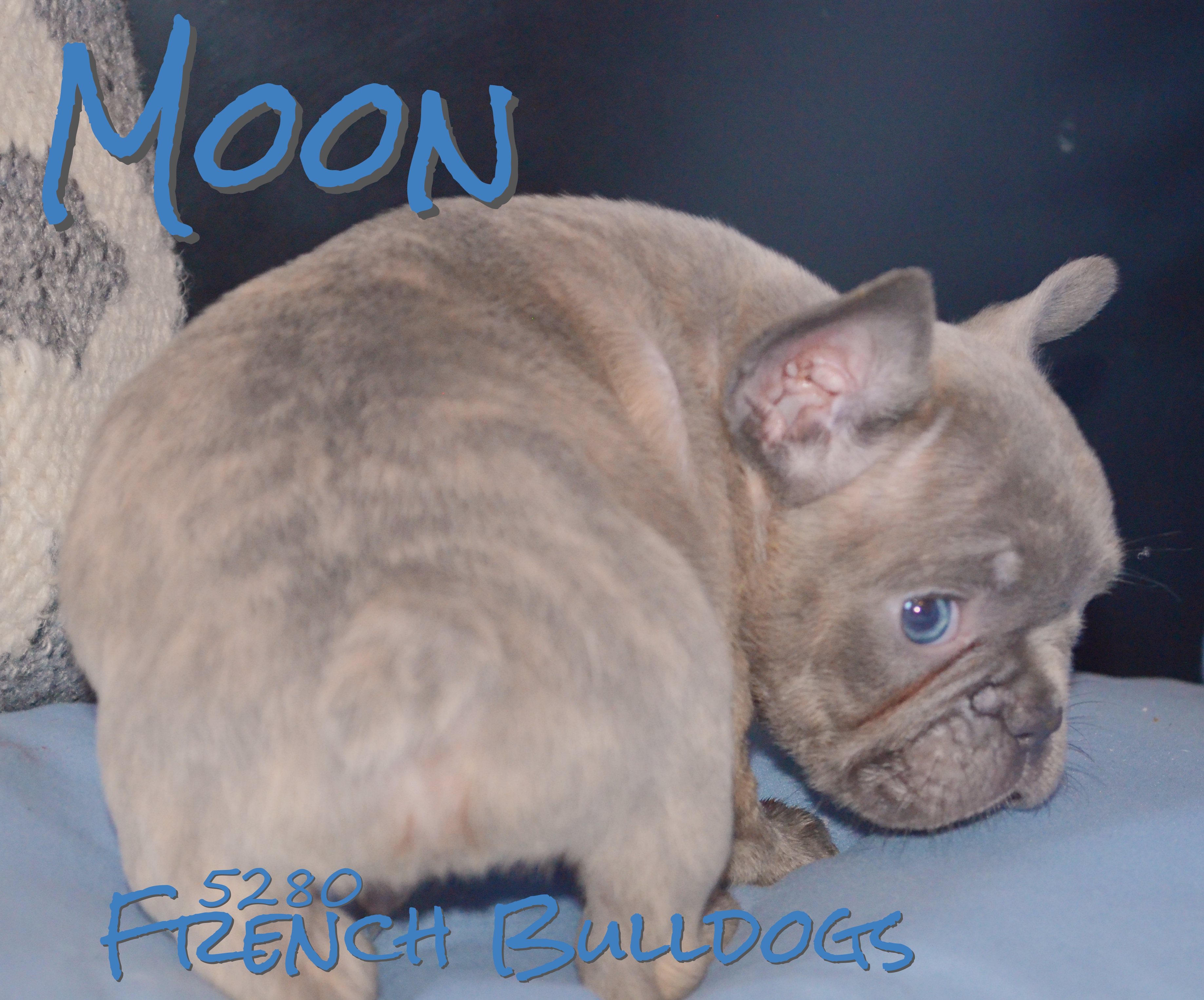When it comes to breeding merle French Bulldogs with other merle French Bulldogs, there is a lot of debate and controversy surrounding the topic. One surprising fact is that merle is not a naturally occurring color in French Bulldogs. In fact, it is a result of a specific gene mutation that can cause a variety of health issues in the breed. So, is it ethical and responsible to breed two merle French Bulldogs together? Let’s explore this further.
Breeding two merle French Bulldogs together can increase the chances of producing puppies with a condition called “double merle” or “lethal white.” This occurs when two copies of the merle gene are inherited, which can lead to serious health problems such as deafness, blindness, and neurological issues. Due to these potential health risks, many reputable breeders and canine organizations discourage breeding two merle French Bulldogs together. Instead, responsible breeders focus on breeding for the health and well-being of the dogs, selecting for a diverse gene pool and avoiding the potential complications associated with merle breeding. It is crucial to prioritize the welfare of the breed and ensure the future health of French Bulldogs.
Breeding two merle French Bulldogs together is not recommended due to the risk of health issues associated with the merle gene. Breeding merles with non-merles is a safer option to prevent potential health problems. It’s essential to prioritize the health and well-being of the dogs when considering breeding. Always consult with a professional breeder or veterinarian for guidance on responsible breeding practices.
Breeding Merle French Bulldogs: What You Need to Know
Breeding French Bulldogs can be an exciting and fulfilling experience. These adorable and affectionate dogs have become increasingly popular over the years. One specific coloration that attracts many breeders and enthusiasts is the merle coat pattern. However, breeding merle French Bulldogs with other merle French Bulldogs requires careful consideration and knowledge of the associated risks. In this article, we’ll explore the topic of breeding merle French Bulldogs with other merle French Bulldogs and the potential complications that can arise.
Understanding Merle Coat Pattern
The merle coat pattern is characterized by patches or streaks of color on a primarily white or cream base. It is caused by a gene mutation that affects the distribution of pigmentation in the fur. Merle French Bulldogs can have a variety of coat colors, including blue, red, chocolate, and fawn. The unique and eye-catching appearance of merle French Bulldogs has led to their popularity in the breeding community.
However, it’s important to note that merle French Bulldogs should not be confused with regular French Bulldogs. While merle French Bulldogs are visually striking, they also come with increased health risks and potential complications.
The Risks of Breeding Merle French Bulldogs with Other Merle French Bulldogs
When it comes to breeding merle French Bulldogs, there is a set of risks and potential complications that breeders should be aware of. Breeding two merle French Bulldogs together can result in a higher chance of producing puppies with health issues. These health issues are primarily associated with the merle gene itself and can affect various parts of the dog’s body, including the eyes, ears, and respiratory system.
Here are some of the potential health issues that can arise from breeding merle French Bulldogs with other merle French Bulldogs:
- Deafness: Merle French Bulldogs have an increased risk of being born deaf, especially if they inherit two copies of the merle gene.
- Eye Abnormalities: Merle French Bulldogs may experience eye anomalies such as incomplete development of the retina, iris, or optic nerve.
- Skin Disorders: The merle gene can lead to various skin issues, including sensitivity to sunlight, abnormal pigmentation, and increased risk of skin cancer.
- Respiratory Problems: Breeding merle French Bulldogs with other merle French Bulldogs can exacerbate existing respiratory issues commonly found in the breed, such as brachycephalic airway syndrome.
The Importance of Responsible Breeding
Responsible breeding practices are crucial when it comes to merle French Bulldogs or any breed for that matter. Breeders should prioritize the health and well-being of the dogs they are breeding. This involves conducting thorough health screenings, genetic testing, and working closely with a veterinarian to ensure the best possible outcomes. Breeding merle French Bulldogs with other merle French Bulldogs should only be done under the guidance of an experienced and responsible breeder.
Considering Alternative Breeding Options
If you are interested in producing French Bulldog puppies with unique coat patterns but want to avoid the potential complications associated with breeding two merle French Bulldogs together, there are alternative options available. One option is to breed a merle French Bulldog with a non-merle French Bulldog. This can result in puppies with a range of coat patterns, including merle, without the same level of health risks.
It’s important to note that responsible breeders will prioritize the health and well-being of the dogs over producing certain coat colors or patterns. Breeding should always be done with the utmost care and consideration for the long-term health of the breed.
Conclusion: Breeding French Bulldogs Responsibly
Breeding merle French Bulldogs with other merle French Bulldogs can come with significant risks and potential health complications. It’s important for breeders to prioritize responsible breeding practices and the overall health of the dogs. Consider alternative breeding options or consult with an experienced breeder or veterinarian to ensure the best outcomes for the breed. Remember, responsible breeding is key to preserving and improving the health and well-being of French Bulldogs.
Comparison of Breeding Options for French Bulldogs
| Breeding Option | Advantages | Disadvantages |
|---|---|---|
| Breeding merle French Bulldogs with other merle French Bulldogs | – Potential for unique coat patterns – Visual appeal |
– Increased risk of health issues – Higher chance of producing puppies with disabilities |
| Breeding merle French Bulldogs with non-merle French Bulldogs | – Increased likelihood of healthier puppies – Variety of coat patterns – Reduced risk of health issues |
– Limited availability of non-merle French Bulldogs |
Key Takeaways:
- Breeding two merle French Bulldogs together can lead to health issues in their offspring.
- Merle is a coat pattern that is caused by a genetic mutation.
- When two merle French Bulldogs are bred together, there is a higher chance of producing puppies with health problems such as hearing and vision issues.
- It is generally recommended to avoid breeding two merle French Bulldogs together to prioritize the health and well-being of the puppies.
- If you are considering breeding French Bulldogs, it is important to consult with a reputable breeder or veterinarian to understand the potential risks and make informed decisions.
Frequently Asked Questions
Here are answers to some common questions about breeding merle French Bulldogs with other merle French Bulldogs.
1. Can two merle French Bulldogs be bred together?
Yes, it is possible to breed two merle French Bulldogs together. However, it is important to consider the potential health risks associated with breeding merle to merle. Breeding two merle French Bulldogs increases the chances of producing puppies with a condition known as “double merle” or “lethal white”. These puppies may have vision and hearing impairments, and can also be more prone to other health issues.
Therefore, it is generally recommended to breed a merle French Bulldog with a non-merle French Bulldog to reduce the risk of producing puppies with health problems. Responsible breeders prioritize the health and well-being of the puppies and work towards breeding for genetic diversity and overall health.
2. What are the potential health risks of breeding two merle French Bulldogs?
Breeding two merle French Bulldogs increases the risk of producing puppies with the “double merle” or “lethal white” gene. These puppies may experience vision and hearing impairments, including partial or complete blindness and deafness. Additionally, they may be more prone to other health issues such as skin problems, immune system disorders, and birth defects.
It is important to note that not all merle French Bulldogs will have health issues, as the expression of the merle gene can vary. However, responsible breeders take these risks into consideration and aim to breed for the overall health and well-being of the puppies.
3. What should be the breeding strategy for merle French Bulldogs?
When it comes to breeding merle French Bulldogs, it is recommended to practice responsible breeding strategies. Breeders should aim to introduce genetic diversity and avoid breeding two merle French Bulldogs together. Instead, it is advisable to breed a merle French Bulldog with a non-merle French Bulldog to minimize the risk of producing puppies with health issues.
By diversifying the gene pool and considering the overall health of the breed, responsible breeders can help maintain the well-being of merle French Bulldogs and minimize the occurrence of genetic health problems.
4. Is it possible to produce healthy merle French Bulldog puppies?
Yes, it is possible to produce healthy merle French Bulldog puppies. While breeding merle to merle increases the risk of health issues, responsible breeders who prioritize the well-being of their dogs can minimize these risks. By carefully selecting breeding pairs and conducting health tests on potential parents, breeders can improve the chances of producing healthy merle French Bulldog puppies.
It is crucial for breeders to engage in genetic testing to identify any potential health concerns and to ensure that the selected breeding pairs are free from known genetic diseases. Regular veterinary check-ups and a proper diet are also important to maintain the overall health of the puppies.
5. Are there any ethical concerns with breeding merle French Bulldogs?
There are ethical concerns when it comes to breeding merle French Bulldogs. Breeding two merle French Bulldogs together can lead to the production of puppies with a higher risk of health issues. It is important for breeders to prioritize the well-being of the dogs and the breed as a whole. Responsible breeders work towards maintaining genetic diversity, reducing the occurrence of genetic health problems, and ensuring the overall health and welfare of the puppies.
Additionally, it is important for prospective owners to understand the potential risks and responsibilities associated with owning a merle French Bulldog, especially one that may have health issues. Adopting from a reputable breeder who follows ethical breeding practices and conducts necessary health tests is crucial to ensure the well-being of the dog and to support responsible breeding.

How to Breed Merle French Bulldog or Frenchton Puppies – All You Need to Know
In breeding a merle French Bulldog with another merle French Bulldog, there is a risk of producing puppies with serious health issues.
It is generally recommended to avoid breeding two merle French Bulldogs together to ensure the health and well-being of the puppies.
